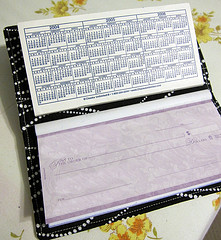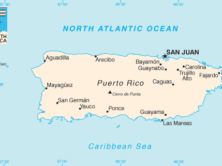
(Credit: Flickr, "heidielliot")
The Society of Professional Journalists’ ethics committee has published the third in its series of “position papers” about journalism ethics.
The SPJ’s ethics committee chairman Kevin Smith told iMediaEthics by e-mail that:
“The position papers are designed to be used by journalists and members of the public as SPJ’s attempt to further explain and educate people as to how the code addresses common ethical issues (ones we routinely address during the course of the year.)”
Because the SPJ’s ethics code is “viewed more than 3,000 times a year,” the SPJ started the position papers to help journalists and the public “apply” the code and to allow the SPJ “to elaborate on the code,” Smith told iMediaEthics by e-mail.
While Smith said he first suggested the idea of the papers a few years ago, the SPJ moved forward with the papers this past year to follow the SPJ’s recently revised textbook, Journalism Ethics: A Casebook of Professional Conduct for News Media. (See our May 2011 report on the book and interview with Fred Brown here.) The book and the papers help the SPJ “push good ethical decision making outward,” Smith wrote to iMediaEthics.
The first two ethics papers focused on “how to use the SPJ code of ethics to address ethical situations” and “whether journalists should engage in political activity.” See the “political involvement” paper, written by the ethics’ committee’s vice chairman Fred Brown and published Dec. 19, here.
The third paper, written by the ethics committee’s Mike Farrell, is on checkbook journalism, or the paying of sources for information or interviews. SPJ’s Kevin Smith told iMediaEthics by e-mail that the committee plans to publish “at least 10” papers until the SPJ’s September 2012 national convention.
“Our goal is to release one each month, usually in the middle of the month,” and the forthcoming fourth and fifth position papers will focus on undercover reporting and plagiarism respectively, according to Smith.
The SPJ noted on its website that it will also address the following issues in upcoming papers: “dealing with victims of tragedy, handling diversity coverage, privacy and news media accountability.”
On Checkbook Journalism
In the position paper, the SPJ highlights the numerous concerns checkbook journalism can bring to news stories. For example, the SPJ explained:
“Readers or viewers … can’t be blamed for wondering whether the source is telling the outlet the truth, telling the outlet what it wants to hear or embellishing the truth to increase the value of the information. If good information is worth so much, better information, true or not, would be worth more.”
The SPJ added that checkbook journalism also “creates a conflict of interest” and builds an unusual relationship between source and reporter.
But, if news outlets do ever pay money in any arrangement, the SPJ called for “full disclosure.”
Read the SPJ’s paper on checkbook journalism in full here. See all of the society’s position papers here.







Comments Terms and Conditions